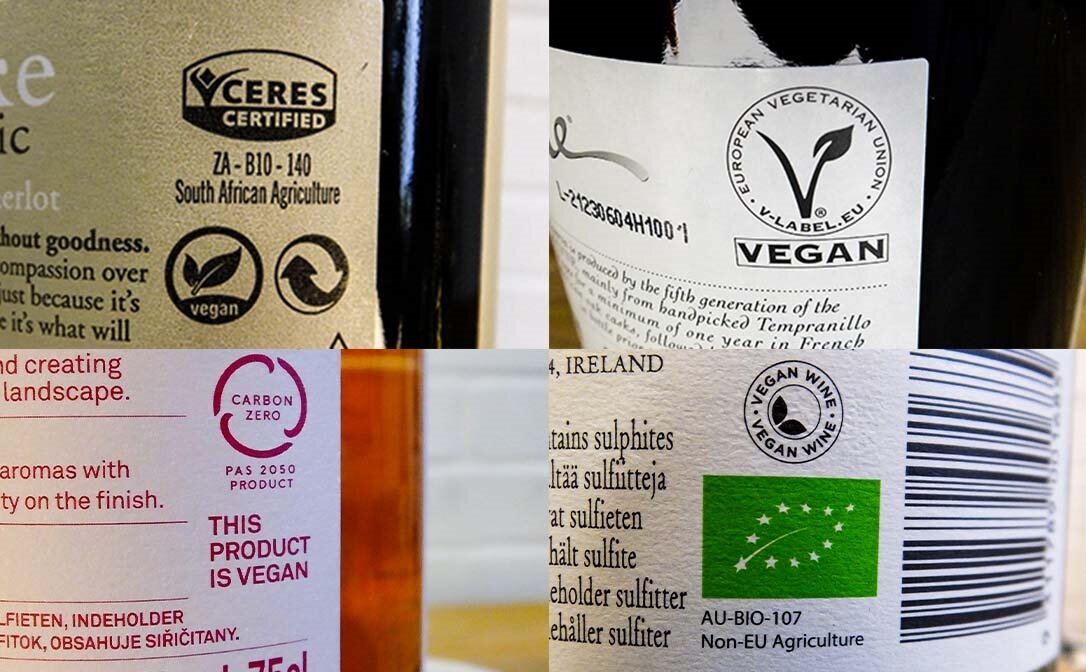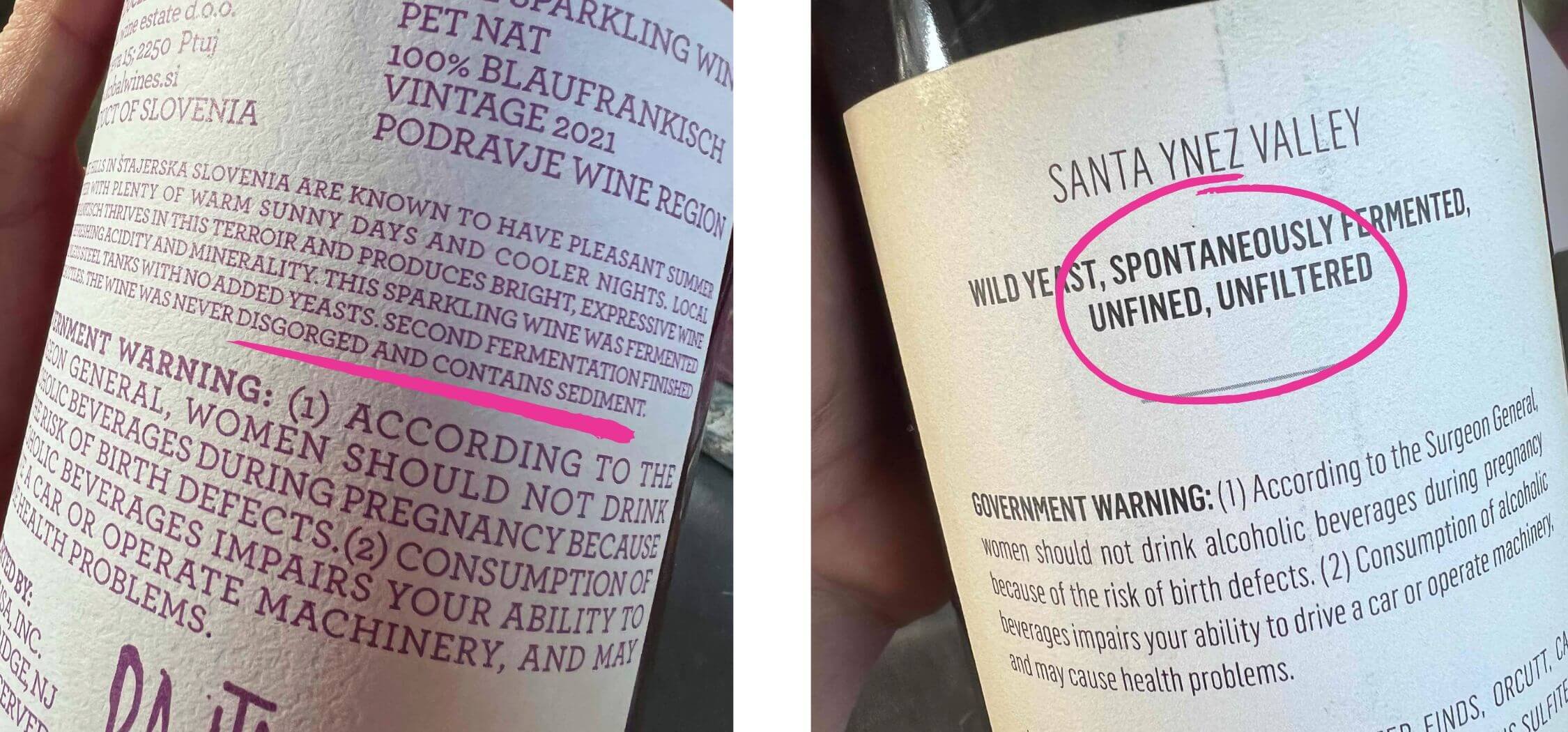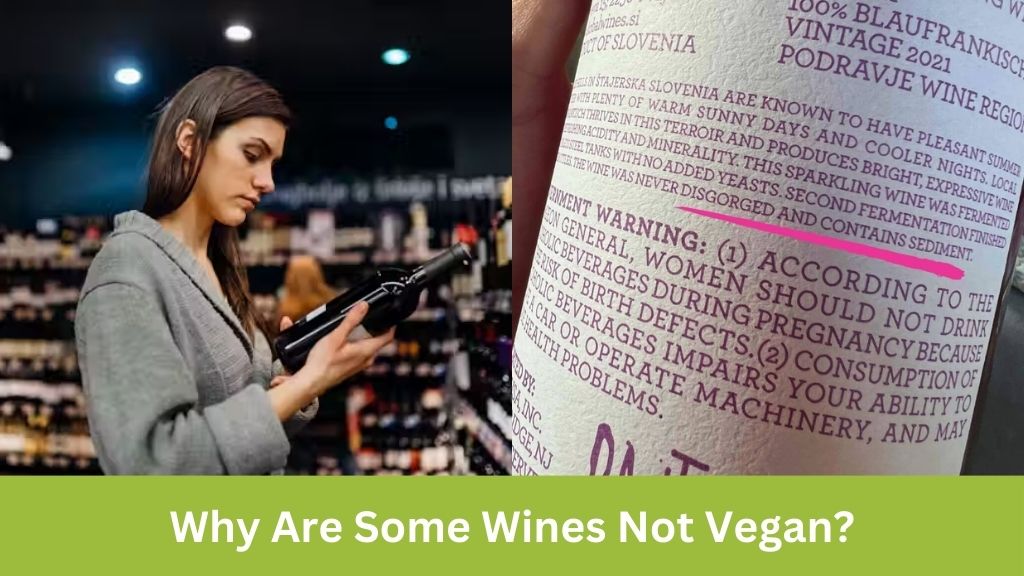In recent years, the popularity of veganism has surged, with many individuals adopting plant-based diets for health, ethical, and environmental reasons. However, despite wine being made from grapes, not all wines are considered vegan-friendly. In this blog post, we’ll explore the reasons behind why some wines are not vegan and delve into the intricacies of winemaking processes.
What is Veganism?

Veganism is a lifestyle that seeks to avoid the use of animal products for food, clothing, or any other purpose. This includes abstaining from consuming animal-derived ingredients and by-products.
Veganism in the Context of Wine
While grapes themselves are plant-based, certain winemaking practices involve the use of animal-derived products, making the final product non-vegan. This can be surprising to many people who assume that wine, being made from fruit, would naturally align with vegan principles.
The Role of Fining Agents
What is Fining?
Fining is a process used in winemaking to remove unwanted particles and compounds from the wine, resulting in a clearer and more stable final product.
Types of Fining Agents
Fining agents are substances added to wine to facilitate the removal of impurities. Some common fining agents include:
- Animal-Derived Fining Agents: These include substances like egg whites, gelatin (derived from animal collagen), casein (a protein found in milk), and isinglass (obtained from fish swim bladders).
- Plant-Based and Synthetic Fining Agents: Alternatives such as bentonite (a clay) and synthetic polymers are also used in some winemaking processes.
Impact on Veganism
The use of animal-derived fining agents renders wines non-vegan, as they introduce animal products into the winemaking process. Despite grapes being inherently vegan, the addition of these agents during production complicates the vegan status of the final product.
Factors Influencing Fining Practices
Historical Context
Historically, animal-derived fining agents were commonly used in winemaking due to their effectiveness in clarifying wine and improving its sensory characteristics.
Technological Advances
Advancements in winemaking technology, such as gentler pressing methods and improved filtration techniques, have reduced the need for fining agents. However, some winemakers still choose to use them for specific purposes.
Winemaker Preferences
Fining practices vary among winemakers and vineyards, with some opting to forego fining altogether, while others continue to use traditional methods.
Addressing Vegan Concerns in Winemaking

Transparency in Labeling
Given the complexities of fining practices, it can be challenging for consumers, especially vegans, to determine the vegan status of wines. Improved labeling and transparency regarding fining agents can help address this issue.
Alternatives and Innovation
The growing demand for vegan-friendly products has led to the development of alternative fining agents and innovative winemaking techniques that prioritize sustainability and ethical considerations.
Consumer Education
Educating consumers about the use of fining agents in winemaking and their implications for veganism can empower individuals to make informed purchasing decisions and support brands aligned with their values.
Conclusion
While wine is traditionally associated with grapes and considered a plant-based product, the use of animal-derived fining agents complicates its vegan status. Understanding the role of fining agents, technological advancements in winemaking, and winemaker preferences sheds light on why some wines are not vegan. By promoting transparency, embracing alternatives, and fostering consumer education, the wine industry can cater to the growing demand for vegan-friendly products and align with ethical and sustainable practices.
I’m Chen Mina, from Vol de Nuit, who has a special passion for bartending, especially mixing wine, beer, and cooktail. Here you will find content about alcoholic beverages, I will bring you knowledge that few people know about this drink.





